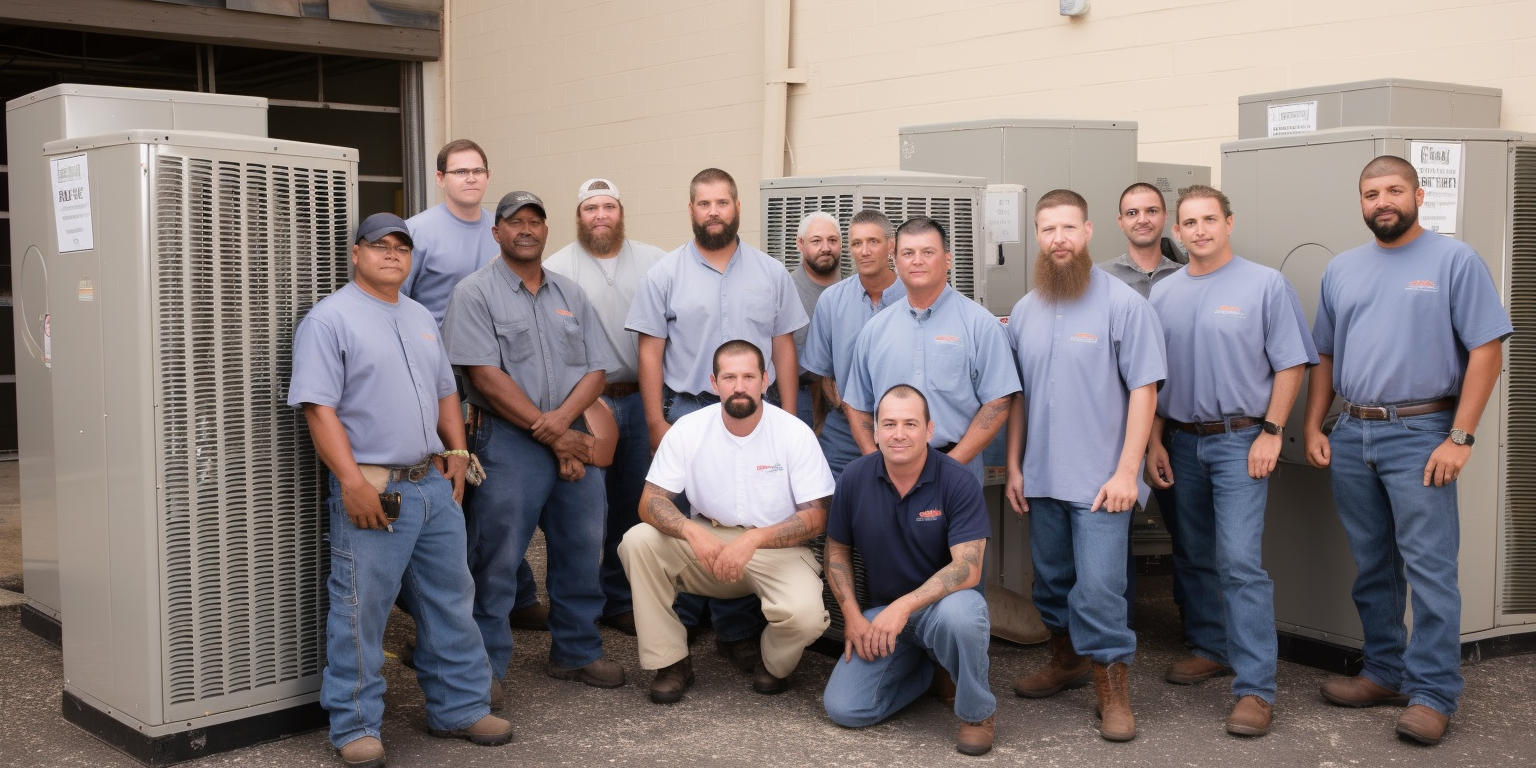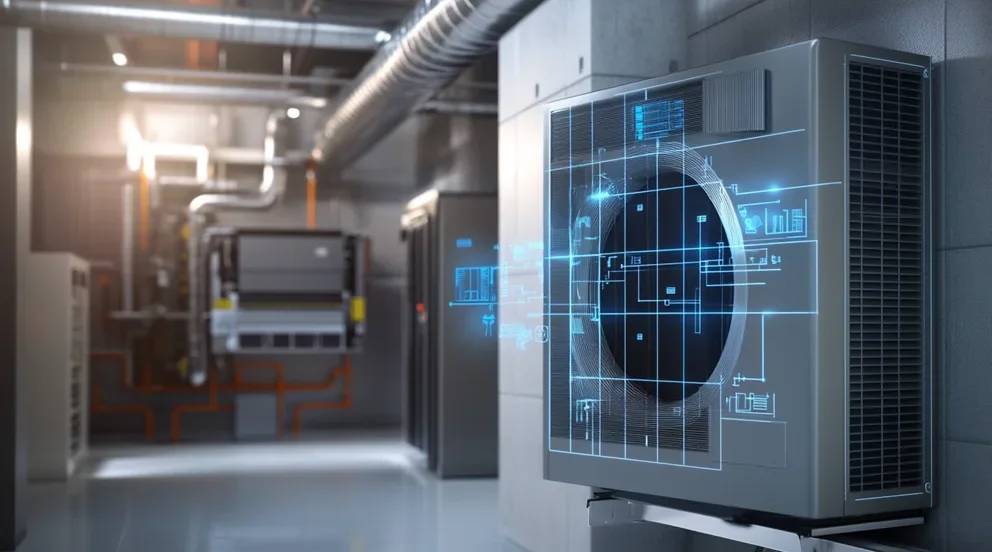Small HVAC companies offer a wide range of services to cater to the varying needs of their clients. These services encompass the installation, maintenance, and repair of heating, ventilation, and air conditioning systems.
One key service provided is the installation of new HVAC systems. This involves the careful assessment of the client’s property, followed by the comprehensive planning and successful implementation of the system. The goal is to ensure optimal temperature control, energy efficiency, and overall comfort.
Maintenance services form another crucial part of their offering. Routine check-ups and regular upkeep are vital for the longevity and efficient functioning of the HVAC systems. This can range from cleaning air filters and ducts to adjusting system controls for better performance.
Repair services are also integral to the offerings of small HVAC companies. They respond promptly to any system malfunctions or breakdowns, ensuring swift and effective solutions to keep the systems running smoothly. This could involve anything from fixing leaks and repairing electrical connections to replacing worn-out parts.
Additionally, many of these companies are versed in providing specialized services, such as indoor air quality assessments. They can identify and rectify issues related to air pollutants, humidity levels, and ventilation, promoting a healthier indoor environment.
How can I verify the credentials and reputation of a small HVAC company?
Verifying the credentials and reputation of a small HVAC company can be a straightforward process. Begin by checking if the company has the necessary licensing and certifications. Most states in the U.S. require HVAC companies to have a license to operate. Confirm that the company’s license is current and active.
Next, examine if the company is bonded and insured. This is critical as it protects the customer from potential damages or accidents that could occur during the HVAC installation or repair process.
Third, look for professional affiliations. Noteworthy HVAC companies often join professional organizations like the Air Conditioning Contractors of America (ACCA) or the Sheet Metal and Air Conditioning Contractors’ National Association (SMACNA). Membership in these organizations indicates a commitment to staying updated with industry trends and standards.
Next, consider the company’s experience. A company that has been in the HVAC business for several years is likely to have a proven track record of quality service.
Finally, it’s essential to assess the company’s reputation. Online review platforms provide invaluable insights into a company’s performance and customer service. Look for patterns in the reviews. If the same negative comments appear repeatedly, it could indicate a systemic issue.
Remember, always ask for references from the company itself. A reputable HVAC company should be able to provide references from satisfied customers. Contact these references and ask about their experience with the company.
Do small HVAC companies offer warranties on their services or equipment?
Small HVAC companies, despite their size, typically provide warranties on both their services and equipment. This is a crucial aspect of their business model, designed to inspire trust and ensure customer satisfaction. A warranty offers peace of mind, signaling that the company stands behind the quality of its work and the performance of the equipment installed.
Often, these companies offer a service warranty, essentially guaranteeing that the installation, repair, or maintenance work is performed to a high standard. Should any issues arise due to the service provided, the company usually rectifies the issue at no additional cost to the customer within a specified period.
Alongside service warranties, small HVAC companies also commonly offer equipment warranties. These warranties come into play if the HVAC equipment fails or underperforms within a certain timeframe post-installation. Notably, this does not cover issues due to misuse or lack of maintenance by the homeowner, but rather, faults inherent to the equipment itself.
The duration of these warranties varies, depending on the company and the type of equipment or service. Some warranties may last a few years, while others may cover a decade or more. It is always recommended to clarify the terms of a warranty, including its duration and what exactly it covers, before engaging an HVAC company’s services.
What are the advantages of choosing a small HVAC company over a larger one?
Choosing a small HVAC company can offer a range of advantages over opting for a larger one. The intimacy of a smaller operation often translates into personalized and attentive customer service. Their local insight allows them to understand specific issues that may be unique to your area.
Small HVAC companies tend to value each customer highly. You’re not just a number on a spreadsheet but an essential part of their business success. This often results in exceptional standards of service, with a commitment to ensuring your complete satisfaction.
Moreover, these companies can often provide faster service. Their local nature means they can reach your home or business quickly, reducing downtime when your system is out of service.
Small HVAC companies also tend to offer more transparent and competitive pricing. Without the overhead costs of large companies, these small businesses can offer fair prices that reflect the actual work done.
Lastly, working with a small HVAC company often means supporting local commerce and fostering community growth. These companies are generally closely tied with the community, contributing to its development and prosperity.
Are small HVAC companies capable of handling commercial projects?
Small HVAC companies are fully capable of handling commercial projects. These companies often possess the necessary skills, expertise, and equipment to undertake such tasks. While the scale of commercial projects can be larger, the fundamental principles and procedures remain the same. Regularly, small HVAC companies leverage their advantage of being nimble and able to offer personalized services, which many larger entities may struggle to provide.
Each commercial project presents its own unique challenges and requirements. This is where the flexibility of small HVAC companies proves advantageous. They can swiftly adapt to the dynamic needs of their clients and offer tailor-made solutions, resulting in high customer satisfaction. Moreover, their local expertise and relationships with local suppliers often enable them to source materials quickly, ensuring project deadlines are met without compromising on the quality.
Furthermore, small HVAC companies inherently operate on a scale that allows for direct communication and a better understanding of the client’s needs. This direct line of communication often results in a more customized approach to each project, regardless of the size.
The professionals working in small HVAC companies usually have a broad range of experience, having worked on a variety of projects with different complexities. This diversity in exposure allows them to bring a unique perspective to commercial undertakings. They can navigate potential challenges and implement effective solutions with a level of expertise that rivals larger companies.
How responsive are small HVAC companies to emergency repair requests?
Small HVAC companies typically prioritize responsiveness when it comes to emergency repair requests. Understanding the discomfort a malfunctioning HVAC system can cause, especially during extreme weather conditions, they aim to provide swift and efficient service.
These companies, being local and smaller in scale, can often arrive on-site more quickly than larger firms. Their intimate knowledge of the local area and its weather patterns allows them to anticipate common issues and respond accordingly. The emphasis is on a quick turnaround time from the moment an emergency call is made until a technician arrives to resolve the issue.
The dedicated professionals in these smaller HVAC companies are often able to offer a more personalized service. They know their clients, their systems, and their unique needs. Their primary goal is to restore comfort and functionality as soon as possible, with minimum disruption to the client.
However, the responsiveness of small HVAC companies can also depend on various factors such as the volume of service calls, the availability of technicians, and the severity of the repair required. Despite these challenges, they strive to manage their resources effectively and efficiently to meet emergency repair demands.
Do small HVAC companies provide ongoing maintenance contracts?
Small HVAC companies indeed offer ongoing maintenance contracts. These contracts cater to the vital need for regular upkeep of heating, ventilation, and air conditioning systems. With such a contract, a homeowner or business operator can ensure that their HVAC system operates at peak efficiency all year round.
The primary role of these small HVAC companies in the provision of maintenance contracts is to conduct regular inspections and necessary adjustments to the HVAC systems. The standard contract usually includes a comprehensive check of the system. This includes assessing the condition of filters, checking for leaks, inspecting ductwork, and ensuring that all components are functioning optimally.
One advantage of entrusting the maintenance to these smaller firms is the individualized service they provide. Often, they are able to offer a more personalized experience due to their smaller client base. They invest time in understanding the unique needs of each client, ensuring that any specific requirements are addressed efficiently.
Importantly, these maintenance contracts can be tailored to suit the client’s schedule and budget. Routine maintenance can be scheduled at a time that causes minimal disruption, whether for a residential or commercial client. Moreover, by having a maintenance contract, clients can often avoid unexpected repair costs, as potential issues can be identified and addressed during regular inspections.
It is also worth noting that small HVAC companies often comprise highly skilled and experienced technicians. They are adept at navigating the complexities of various HVAC systems, ensuring reliable and efficient service.
What steps do small HVAC companies take to ensure customer satisfaction?
Small HVAC companies prioritize customer satisfaction through a variety of effective approaches. First and foremost, they maintain a crew of highly trained, skillful technicians. These professionals offer top-tier service, ensuring systems run efficiently, thereby reducing energy consumption and lowering utility bills.
Secondly, they provide personalized, timely service. Understanding that every customer’s needs are unique, they tailor their services accordingly. If a system requires repair or replacement, they work diligently to complete the job promptly, reducing any inconvenience for the client.
Thirdly, they offer fair, transparent pricing. These businesses understand the financial burden unexpected repairs can cause. Therefore, they provide competitive, upfront pricing, avoiding hidden costs. This practice fosters trust and loyalty among their customer base.
Finally, they invest in customer education. They understand the importance of informed clients who can make confident decisions regarding their HVAC systems. Therefore, they devote time to explain the intricacies of the service, the benefits of regular maintenance, and how to maximize system performance.
Key Takeaways:
- Small HVAC companies offer personalized service due to their ability to understand and cater to individual client needs.
- Their diversity in exposure allows them to navigate potential challenges and implement effective solutions with a level of expertise that rivals larger companies.
- Small HVAC companies are typically more responsive to emergency repair requests, often arriving on-site quicker than larger firms.
- They offer ongoing maintenance contracts, ensuring regular upkeep of HVAC systems, and these can be tailored to suit the client’s schedule and budget.
- Customer satisfaction is a priority for small HVAC companies, and they ensure this through highly trained technicians, personalized service, fair pricing, and customer education.



